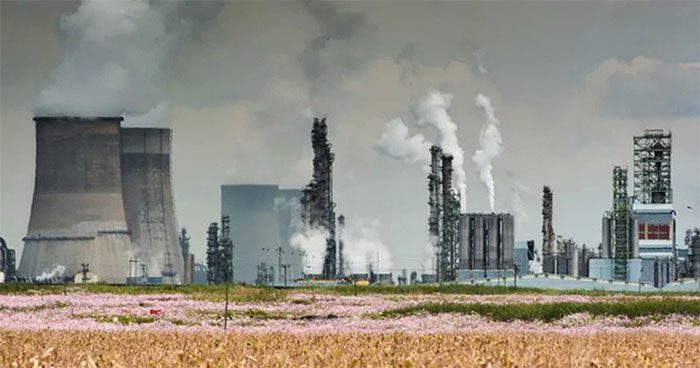The anticipated report has been delayed due to last-minute debates over the precise wording of the document. Limiting global warming to 1.5 degrees Celsius compared to pre-industrial levels will require greenhouse gas emissions to peak no later than 2025. At the same time, methane emissions need to be reduced by about one-third.
The Intergovernmental Panel on Climate Change (IPCC) of the United Nations has stated that it is nearly inevitable for humanity to quickly exceed the critical temperature threshold of 1.5 degrees Celsius under this scenario. However, Earth’s temperature could return below this level by the end of the century.
Jim Skea, co-chair of IPCC’s Working Group III, stated in a statement accompanying the report: “We need to act now or never if we want to limit global warming to 1.5 degrees Celsius. If we do not cut emissions immediately and extensively across all sectors, it will be even more impossible to do so in the future.”

Immediate reduction of greenhouse gas emissions is necessary to limit global warming.
The goal of 1.5 degrees Celsius is the temperature threshold established in the landmark 2015 Paris Agreement. It is recognized as a global target because exceeding this level poses the risk of reaching a “tipping point.” This is a threshold where small changes could lead to catastrophic alterations in the entire life-supporting system of Earth.
Julia Steinberger, an ecological economist and professor at the University of Lausanne in Switzerland, told CNBC over the phone: “The first thing is, we are going the wrong way, both in terms of trajectory and policy; we are not going to maintain 1.5 or even 2 degrees Celsius.”
The latest IPCC report comes after a series of shocking extreme weather events around the globe. For instance, just weeks ago, an iceberg the size of New York City collapsed in Antarctica.
This catastrophic scenario has spurred a climate strike last month. Hundreds of thousands of environmental activists from 93 countries marched with the slogan #PeopleNotProfit.
IPCC Chairman Hoesung Lee stated that humanity is at a “crossroads,” but the tools and know-how needed to limit global warming are still available.
The United Nations Climate Committee has said that to keep global temperature rise below 1.5 degrees Celsius this century, emissions must be halved.
IPCC scientists also reiterated the call for reducing fossil fuel use to limit global warming, which currently stands at 1.1 degrees Celsius above pre-industrial levels.
The report indicated that the average annual global greenhouse gas emissions were at the highest levels in human history from 2010 to 2019, but the rate of increase has slowed. This coincides with growing evidence of climate action.
However, the report warns that limiting global temperature to 1.5 degrees Celsius will not be achievable without immediate and deep emission reductions across all sectors.
The report states that these cuts will require major transformations in the energy sector, including a significant reduction in fossil fuel use, widespread electrification, improved energy efficiency, and the use of alternative fuels such as hydrogen.
Cities are said to offer significant opportunities for emission reductions. The report suggests this can be achieved through lower energy consumption, electrification of transportation, combined with low-emission energy sources, and enhanced natural carbon absorption and storage.



















































